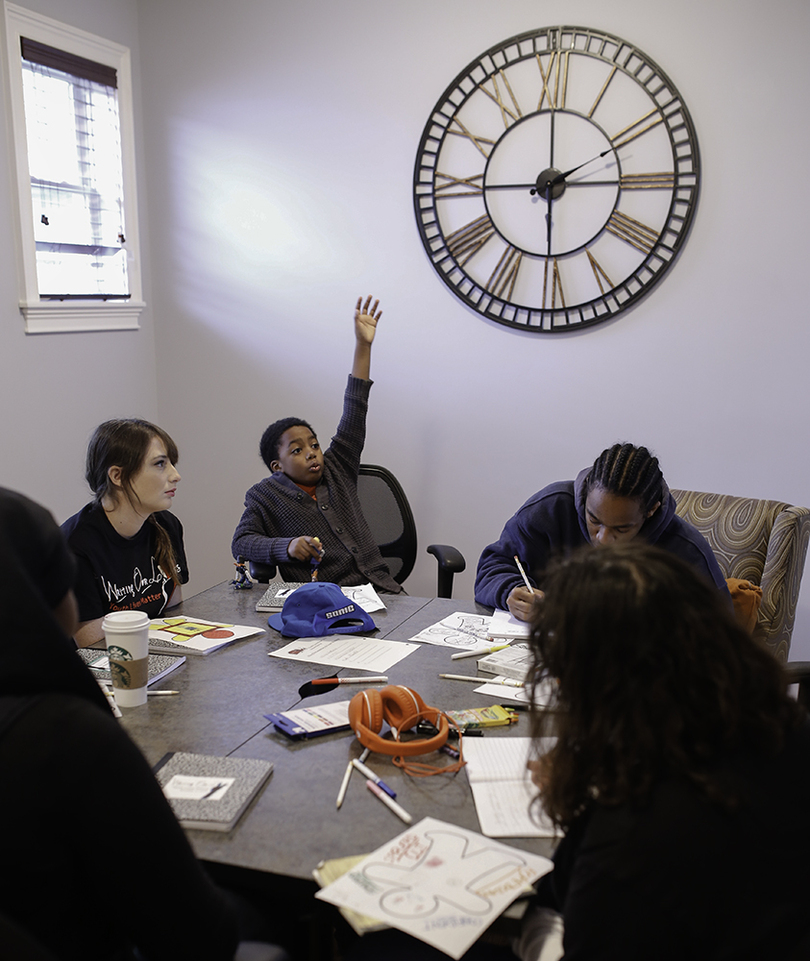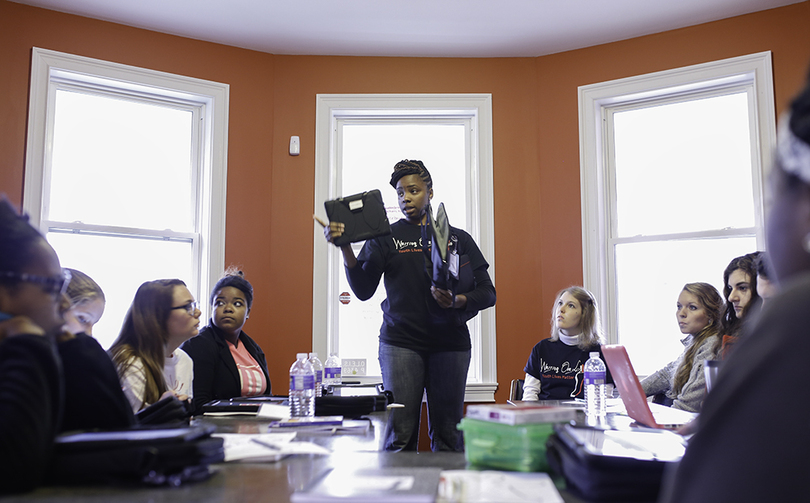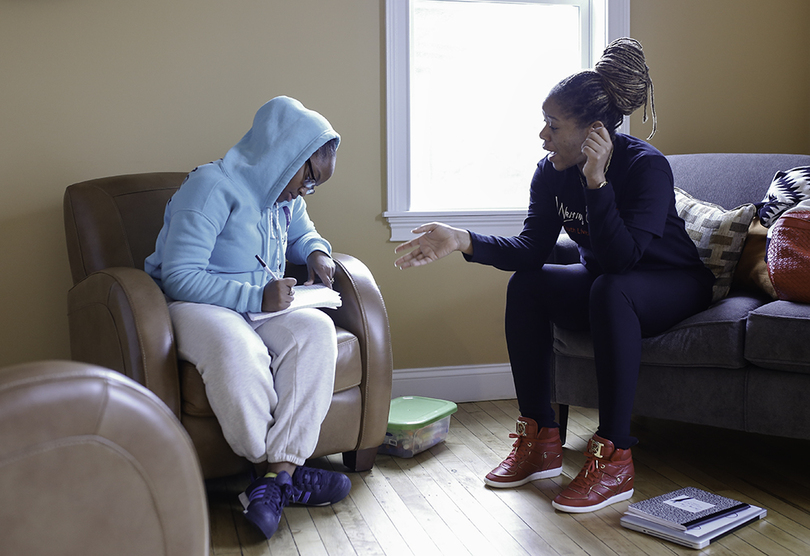Writing Our Lives program inspires local youth to express themselves through writing
When Sherri Williams goes to a Barnes & Noble, she notices the sketches of famous authors on the wall.
There’s Edgar Allan Poe, Walt Whitman, Ralph Waldo Emerson and many more.
They’re pretty much all white men, said Williams, a Ph.D. student in the S.I. Newhouse School of Public Communications, which poses a danger for young students.
“So you get the subliminal message that the writers that are important and the voices that are important are white men, and not every student is a white man,” she said.
On Nov. 1, Williams hosted a writing workshop at the Writing Our Lives conference in Syracuse for the fourth consecutive year. Writing Our Lives is an organization dedicated to creating a space for young, typically African American, students to write creatively and to learn that their voice matters.
“Writing Our Lives shows them it’s really important just to document their experiences, just to get their feelings out, just to write about whatever they feel because that is important, regardless of the semantics or the grammar or the structure of it,” Williams said. “Just their experience, their lives and the things that they care about are important, and they should be documented.”
The theme of this year’s conference was “Youth lives matter,” which was chosen because of the growing trend of youth movements nationwide, said Marcelle Haddix, the founder of the program.
“We’re kind of building on the momentum and the energy nationally and globally, where young people are organizing in ways to resist systems of oppression and power in their communities by raising their voices through writing and public speaking,” said Haddix, the director of the English education program in the School of Education.
Haddix started Writing Our Lives in 2009 after moving to Syracuse in 2008. She said during her first year in Syracuse, she got involved in community events regarding educations and families. After hearing parents’ dissatisfaction with the school system and experiencing her own frustrations, she decided to be a part of the solution.
Haddix began to host writing workshops at a library in the Southside of Syracuse and building relationships with local teachers and librarians. When she had built enough interest in 2009, she organized the first “Writing Our Lives” conference.
Since then, the conference has evolved into a program. This year, Writing Our Lives started to feature after-school programming four times a week, offering workshops on a variety of different genres of writing including music composition, social media, photojournalism and spoken word poetry.
Brandi Williams, a second year doctoral student in the literacy education program, is involved with Writing Our Lives and helps organize and facilitate the after-school program, which takes place at the South Side Communications Center on South Salina Street.
“The point of the after-school program is really to present and create a space where students are able to hone in on these critical literacy skills as well as just being presented with a space that provides them to be creative in a different way that they may not receive in school,” Williams said.
The smaller, more focused nature of the after-school workshops provides more consistency for the students, Haddix said. This allows students to develop a stronger connection with the program.
This year, SU undergraduates also played a large role in the Writing Our Lives conference. Haddix, who teaches an honor’s class about youth writers and activism, brought her class to the conference to help facilitate the workshop.
Both Ronald Taylor and Rachel Brown-Weinstock volunteered with different groups of students, and while their job was to help empower the students, they ended up being empowered in the process.
Brown-Weinstock, a sophomore sociology, policy studies and citizenship and civil engagement triple major, said she didn’t realize how much passion young students could have until she heard the spoken word performances at the end of the conference.
Taylor, a senior political science and policy studies double major, had a similar experience. A spoken word poet himself, he said he never realized how many talented middle and high school students there were in Syracuse.
During the workshop Taylor helped facilitate, students were tasked with writing spoken word pieces and recording them over music. Taylor said a particularly memorable part of the conference is when one student that was initially shy performed her poetry.
“The way she really just spoke about her experiences, and even start to break down in tears a bit, was really powerful because it was cool to see the students who really hadn’t had the opportunity to open up and express her experiences,” Taylor said. “She was given the platform to do so and then being told that her experience matters.”
While Haddix said it’s difficult to trace the success of Writing Our Lives in traditional ways such as test scores, she knows that on an individual level, the opportunities the program provides for young people to express themselves has made an impact on their lives.
Said Haddix: “Having opportunities to see yourself as proficient in an area changes everything for you. It changes what you see as your possibilities and opportunities in life when people are constantly shutting the door on you. So it means a great deal for young people to be in spaces where they are affirmed, and where they are seeing possibilities.”
Published on November 4, 2014 at 12:01 am
Contact Brendan: bskrisel@syr.edu









